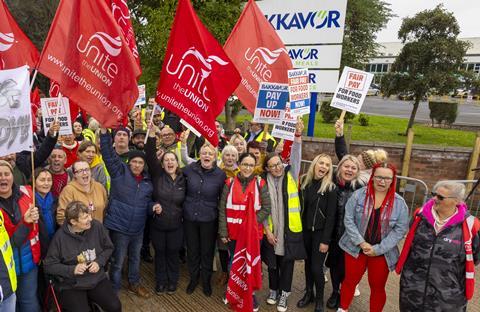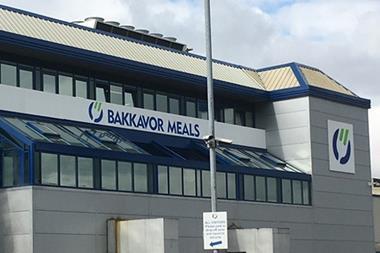
Strike action over pay levels at food manufacturer Bakkavor’s site in Spalding, Lincolnshire has entered its fourth week.
Four hundred members of Unite the Union who work at the factory – which produces desserts, pizza, bread, salads, and more for retailers including Tesco, M&S, and Waitrose – walked out on Friday 27 September after rejecting a proposed pay increase of 7.8% to its lowest paid colleagues and 6.4% across all other grades. They represent around 35% of the workforce at the site.
Unite claims the strikes are affecting Bakkavor’s customers with ‘empty shelves being reported as production lines can no longer cope with orders’. However, the manufacturer said disruption to supply has been minimised and it is working with customers to put contingency plans in place.
Those participating in the industrial action are aiming to drum up more support for their cause tomorrow (Tuesday 22 October) with a march through the town centre.
“Bakkavor continues with its tone-deaf approach to this dispute. A company that makes huge profits from workers in their community yet refuses to pay them a fair wage,” said Unite general secretary Sharon Graham. “If the company thinks our members will go quietly and give in they have another thing coming. Bakkavor will be facing the full force of Unite.”
Sadie Woodhouse, general manager at Bakkavor Spalding said the firm was “clearly disappointed” that the strike action went ahead despite efforts to negotiate with Bakkavor putting what Woodhouse described as “a good deal on the table, well above inflation and national living wage”.
Bakkavor’s proposed entry rates (inclusive of paid breaks) range from £12.43 to £13.02 depending on the shift pattern, with the top rates ranging from £14.17 to £14.85. Bakkavor believes this offer is highly competitive, is well-ahead of inflation of 1.7% and the National Living Wage of £11.44.
“We respect the role that unions play generally in protecting workers’ rights. However, it makes no sense for a union to call for a strike against a business that is already looking after its people, creating employment in the local community, investing in training and putting forward above-inflation pay rises,” Woodhouse added.
































No comments yet